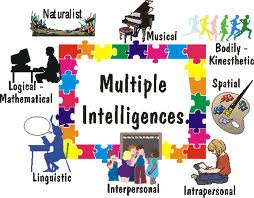After having an understanding of the learning style model presented by Dr. Ken and Rita Dunn, I enumerated or at least identified my learning components in relation to their 21 elements. It’s a bit interesting to become aware of these factors as they truly influence the manner an individual gains learning. Below is the summary of my own learning components relevant to this model.
ENVIRONMENTAL STRAND
- Sound. As I previously mentioned in this journal, I enjoyed reading and studying my lessons while music is playing as it helps me relax and filter out extraneous sounds/noises
- Light. I prefer studying in a bright environment as it prevents me from sleeping 😀
- Temperature. I can’t study in a very hot weather. I perspire easily and it makes me uncomfortable to focus on my lessons while feeling the “heat” in and out
- Design. It’s a combination of informal and formal designs. At first, I will study my lessons using a chair and desk (an office set-up to formalize the setting) and then I will shift to my couch, to bed, and there it goes… sleeping comes next! 😀
EMOTIONAL STRAND
- Motivation. Admittedly, my motivation fluctuates. There were times I’m so eager to learn and study because of many factors (inspiration and positive outlook) while there were times I’m a fan of procrastination (prioritizing gimmicks, leisure, etc.).
- Persistence. I don’t like the atmosphere of studying one subject/course at a long period of time. For instance during college, I review my major subject for 3-4 hours, followed by 1-2 hours for minor subjects, before going back to major subject. I’m also used to do “multitasking” (though I realized this is not healthy for optimum learning).
- Responsibility. I am generally conforming most especially when it comes to deadlines, specific instructions and the like. I know studying and learning entail big personal responsibility.
- Structure. At times I’m really keen to the “specifics” of a certain project. But more often than not, I’m into experimenting, and adding my own flavors of creating such pieces.
SOCIOLOGICAL STRAND
- For the most part, I like to study my lessons alone as I can concentrate more. But it doesn’t mean that I’m not into open discussions and brainstorming. I usually do my part first of understanding the topics at hand, then I will enrich this by exchanging ideas and points with other people. Definitely if the project requires group effort, I can say that I’m comfortable collaborating with different individuals.
PHYSIOLOGICAL STRAND
- Mobility. I can finish my lessons in a plain sitting condition. I’m not into moving or doing such things while reading.
- Intake. This is one important component in my own learning. To break the monotony of my studying, I do eat a lot of food (nuts, sweets, breads and junks). I also make this a reward for me (let say, I will only have my favourite pasta ONLY after completing chapters 1-3 of a book).
- Time of the Day. I prefer studying my lessons when the noise level is at its lowest. In our place, it will be during late night (10pm onwards) to early morning (4am to 6am).
- Perceptual Modes. I’m a combination of being a visual and auditory learner. I like it when I see the application of certain concepts (return demonstration) as it gives me a clearer picture of how to do things right. I’m also a fan of teachers who possess a well-modulated voice. It captures my attention easily.
PSYCHOLOGICAL STRAND
- Generally, I can say that I’m into inductive reasoning where I focus on the small things first before actually understanding the general picture. However at times, I also enjoy looking at the big picture first and from there gathering and bringing out the small pieces.
- I think my left hemisphere predominates not just because I’m right handed but also the fact that I’m not into creative and artistic thinking for the most part. I prefer analysing things out over creating exceptional arts.
- Lastly, I prefer to think and reflect first before saying or stating it out. It’s not like playing on the safe side but it’s more of being responsible to the ideas and points you’re about to share.
Understanding own learning style may seem difficult but with guiding model like this, we can easily identify or at least have an overview on how we learn things best. Learning styles i believe are subject to change over time, but one thing is for sure: it aids in optimizing learning experiences by making it more meaningful and comfortable.
References:
The Dunn and Dunn Learning Styles Model. Retrieved May 28, 2013 from http://www.seechangeconsulting.com.au/images/Page_file_Library_Documents/Dunn%20and%20Dunn%20Model.pdf







